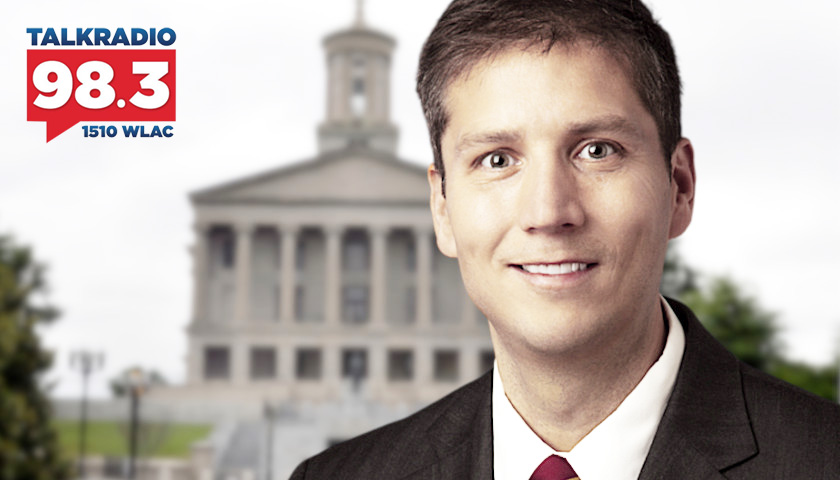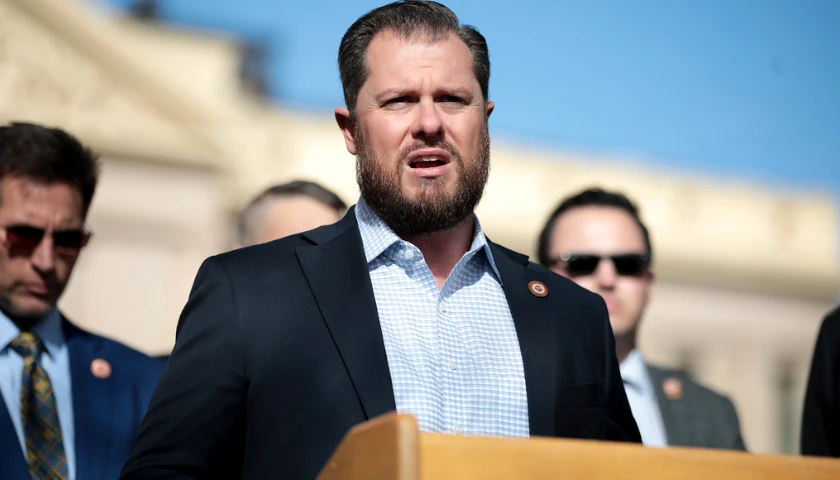Live from Music Row Monday morning on The Tennessee Star Report with Michael Patrick Leahy – broadcast on Nashville’s Talk Radio 98.3 and 1510 WLAC weekdays from 5:00 a.m. to 8:00 a.m. – host Leahy welcomed Southeastern Legal Foundation Director of Litigation Braden Boucek to the newsmaker line to explain how the educational savings account works and offer updates on pending litigation demonstrating the state’s resistance toward parents who want to control their children’s education.
Leahy: We welcome to our newsmaker line, our very good friend Braden Boucek, who is director of litigation for the Southeastern Legal Foundation. Braden, tell us about the May 17th decision by the Tennessee Supreme Court that reaffirmed the educational savings account, or voucher, bill that was passed by the Tennessee General Assembly. This was a big victory for the governor. Tell us what was at issue in the case, what the decision was, and where it stands now.
Boucek: Thanks, Michael. It’s great to be back on. As you said, just a couple of weeks ago, the Tennessee Supreme Court approved Governor Lee’s school choice program. It actually is an educational savings account that provides an educational lifeline to parents trapped in the two worst school districts in Tennessee. That’s Shelby County in Memphis and Davidson County in Nashville.
And an educational savings account is really the most innovative form of school choice out there. It basically gives parents access to a whole range of educational opportunities, including tutoring, after-school activities, software, music lessons, and whatever you want to use it on. It’s not a traditional voucher in that it doesn’t just go to a school. So it’s a great day for freedom and a great day for parental choice.
Leahy: Now, as I understand it, the Supreme Court decision was three-to-two in favor of the governor’s position and the law itself. I think the argument made, the lower courts had ruled that it violated what was the home rule law – was that the name of the law that they claimed it violated, which said that you couldn’t have anything specific to a county administration? And I think the argument made — I probably got this a little bit wrong, but maybe you could help me straighten it out.
But the argument was made that it applied not to the counties but to the local education agencies. The school districts and the counties actually just approved the budget. It’s implemented by the local education agencies. Help me straighten that one out.
Boucek: I don’t think you need any straightening out at all. I think you said it exactly right. There’s a home rule amendment in Tennessee’s constitution which forbids making laws that only apply to one city or county. And, of course, this is a pilot program, and it’s aimed at the two worst school districts in the state.
That’s Memphis and Nashville. You’d think they’d be grateful for the assistance, given how chronically they’ve dropped the ball in this realm, but instead, they turned around immediately and sued the state of Tennessee.
Of course, there’s a big difference between Memphis, the city, and Nashville, the city, in the actual school board of Davidson County and the school board of Shelby County. That’s to who the law applied. Those are actually state agencies. So you really have this almost perverse scenario. We have state agencies suing the state for which they work.
Leahy: Yeah, very interesting. Now, it’s not the end of the story, is there more litigation involved? Bring us up to speed on where it stands. Now, if you’re a parent in one of these failing school districts in Shelby County or Davidson County, are you able to get this money, and are you able to use it for the educational purposes the law intended?
Boucek: Yeah, the program was ready to rock back before a judge put a stop to it. So my assumption is that this program will be hitting on all cylinders by the time the next school year is in session. Details have not yet been released. And, of course, the lawsuit is still ongoing.
In fact, even though the Supreme Court already ruled in favor of the state and program, just a week ago, the city of Nashville announced that they were asking the Supreme Court to reconsider its ruling, which is a very unorthodox and odd procedure.
Leahy: How do they do that? What’s the legal basis for doing that?
Boucek: They just filed a motion saying, Supreme Court, you are wrong and you should say you’re wrong and you should reconsider it.
Leahy: That’s all?
Boucek: That’s it, right. If it sounds a little bit desperate, that’s because it is. But, you know, this is how determined they really are to stop parents from being in charge of their kids’ education.
Leahy: That’s not going to go anywhere, is it?
Boucek: I would not have high hopes that you’re going to convince the Supreme Court who just ruled against you two weeks ago that they were wrong two weeks ago.
Leahy: So when is all of this going to likely be resolved? And if you’re a parent, let’s say in our listening audience right now, here in Davidson County, who qualifies for this educational savings account money and what should they do?
Boucek: Right. So what should they do is they should go to the state’s Department of Education web page. There are tons of details on there for parents who are interested in using the program to qualify. You have to have a child in one of the public schools in either Shelby County or Metro [Nashville]. And there’s an income limit for the pilot program.
I think you can’t be more than 200 percent over what you need for the school lunch program. But this is a pilot program, and I’m confident this is going to deliver major returns for the people who use this program. And let us hope that we use this as a major opportunity to dismantle the way in which the public school monopoly currently works.
Leahy: So let’s say there’s a parent listening right now, here in Davidson County, and they meet the criteria from an income level, and their kids are going to a public school that they don’t like. It’s not doing well. They go to this website, they apply for the program. What do they get?
Boucek: They’ll get an educational savings account in most but not all of the amount of the cost of what the school spends on their child. So if the school spends in Shelby County, I think it’s around $11,000, roughly 75 percent of that is given directly to the parents to spend on educational purposes.
Leahy: How does this work? Do they get $7,000 put in their bank account? What do they get?
Boucek: No, it’s not a direct cash transfer but they do get access to this educational savings account. And there are safeguards in place to ensure that there’s obviously no fraud and to make sure the parent is using it on a true educational need.
Leahy: So could they like, if there’s a private school they wanted to attend?
Boucek: Yes, they could divert all the funds there.
Listen to the interview:
– – –
Tune in weekdays from 5:00 – 8:00 a.m. to the Tennessee Star Report with Michael Patrick Leahy on Talk Radio 98.3 FM WLAC 1510. Listen online at iHeart Radio.








